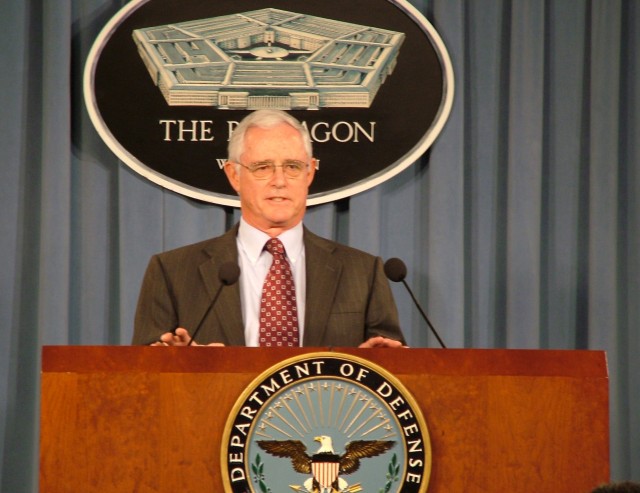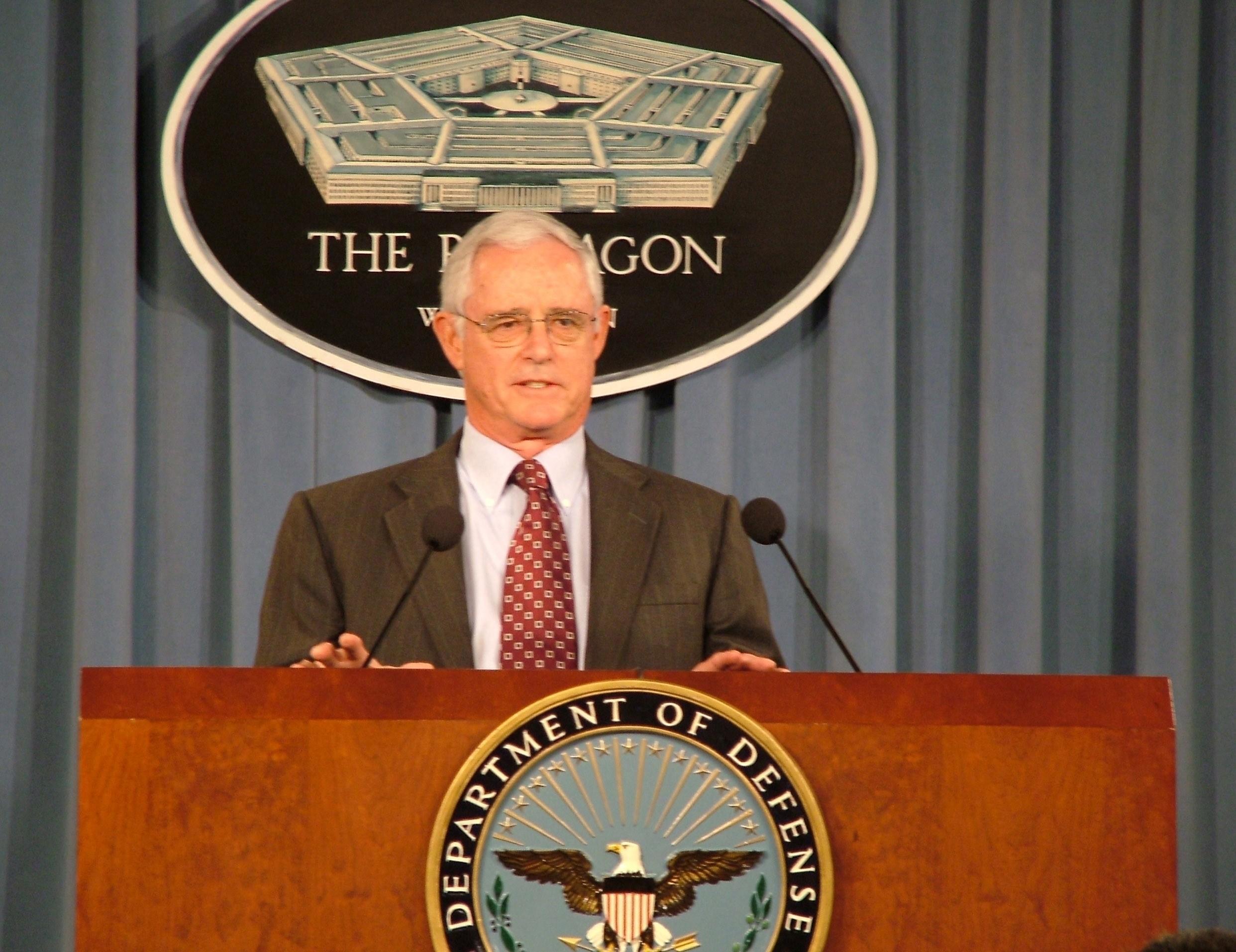WASHINGTON (Army News Service, Nov. 1, 2007) -- Not enough people, too little training, and an antiquated system. Those are the key findings in a report released today on Army contracting in Iraq, Afghanistan and Kuwait.
Secretary of the Army Pete Geren appointed the "Special Commission on Army Acquisition and Program Management in Expeditionary Operations" in mid-September to review contracting linked to the war effort. He appointed former Undersecretary of Defense for Acquisition, Technology and Logistics Dr. Jacques Gansler to head the six-member commission.
The commission's findings, delivered today, provided the "blunt assessment we asked for and needed," Secretary Geren said, adding that it also provided a plan for the way ahead.
Dr. Gansler said the first steps are to hire more contracting officers and to train them properly. While the workload in contracting actions has increased more than 350 percent in the last 12 years, he said the Army's contracting-oversight workforce has been almost cut in half.
"First and most important is the people," Dr. Gansler said this afternoon at a Department of Defense press conference. He recommended adding 400 Soldiers and 1,000 Civilians to the Army contracting force, and another 583 Army personnel to fill positions in the Defense Contract Management Agency.
He also recommended establishing an Army Contracting Agency and adding five generals to the Army contracting force, to give it stature and importance. In the 1990s, he said the Army had five generals on the contracting force, and now there are none.
Secretary Geren pointed to post-Cold War cuts to the Army acquisition budget as the reason for an undersized acquisition workforce today.
"This workforce has not been adequately expanded, trained, structured, or empowered to meet the needs of our warfighters, now or in the future," Mr. Geren said. "We also need to do a better job in training our commanders on their responsibilities for requirements definition and contractor performance."
Dr. Gansler pointed out that only 36 percent of those with contract oversight in Iraq and Kuwait are certified. He recommended training, especially in expeditionary contracting. He said expeditionary contracting is more demanding, because the needs of the operational commander are often immediate.
He recommended special training for expeditionary contracting that teaches shortcuts, but keeps contracting officers within the law.
"We must recognize that expeditionary contracting is different," Dr. Gansler said, explaining that products must often be purchased quickly from host-nation countries. "This means where it's appropriate, getting it right off the fields."
He said this may mean Congressional relief from U.S. labor statutory provisions such as Buy American, the Berry Amendment and Specialty Metals. He said some such relief has already been provided in Iraq, but it is needed for the next contingency.
He said Congress also needs to change Civil Service provisions to ensure that contracting officers who volunteer to go to a war zone do not lose their life insurance and medical benefits.
The commission outlined four areas as critical to future success:
(1) Increased stature, quantity and career development for contracting personnel -- both military and civilian, particularly for expeditionary operations;
(2) Restructure of the organization and responsibility to facilitate contracting and contract management;
(3) Provide training and tools for overall contracting activities in expeditionary operations; and
(4) Obtain legislative, regulatory, and policy assistance to enable contracting effectiveness, important in expeditionary operations.
The commission also followed investigations and audits that identified contractors and government contracting officials for corrupt activity related to contingency contracting. As of Oct. 23, 83 Army criminal investigations relating to contract fraud in Iraq, Kuwait, and Afghanistan were ongoing. While the cases vary in severity and complexity, most involve bribery. There are confirmed bribes in excess of $15 million, according to the Army Criminal Investigation Command.
So far 23 U.S. government employees, both military and civilian, have been charged or indicted in federal court. Contracts valued at more than $6 billion have been affected.
Dr. Gansler said that many of those who committed fraudulent acts were not actually contracting officers, but personnel who were asked to oversee contracts as a secondary responsibility.
With training, management and oversight, fraud is less likely to occur, Dr. Gansler said.
"The overwhelming majority of our contracting workforce, civilian and military, is doing an outstanding job under challenging circumstances," Secretary Geren said. "But, we must do a better job resourcing and supporting them in their critical work. We will take the steps necessary to ensure that we execute our responsibility effectively, efficiently and consistently with Army values.
Complementing the commission's strategic review, Secretary Geren also formed a task force to review current contracting operations and take immediate action where appropriate. The Army Contracting Task Force, led by Lt. Gen. N. Ross Thompson, deputy to the assistant secretary of the Army for acquisition, logistics and technology; and Ms. Kathryn Condon, executive deputy to the commanding general of Army Material Command, has already made actionable recommendations and is implementing improvements.
The Army has thoroughly reviewed the manning, resourcing, processes and programs of the U.S. Contracting Command Southwest Asia - Kuwait, and has developed a Strategic Plan for the future, officials said. That plan is based on appropriate and increased staffing, enhanced training, and the leveraging of technology to ensure incidences of procurement and contracting fraud are detected early and handled expeditiously.
Operations in Iraq and Afghanistan indicate that future military operations will involve large numbers of contractor personnel, Secretary Geren pointed out. The U.S. Army has never fought an extended conflict that required this much to be outsourced. About half of the personnel currently deployed in Iraq are contractor employees. Contractors provide food services, interpreters, communications, equipment repair, and other important services.
"High-quality contracting and procurement must be an Army core competency," Geren said. "The Army has an obligation to correct faults in this system; it is an obligation we take seriously. I deeply appreciate the good work of Dr. Gansler and his commission. We are responding positively and quickly to the commission's findings and recommendations."


Social Sharing